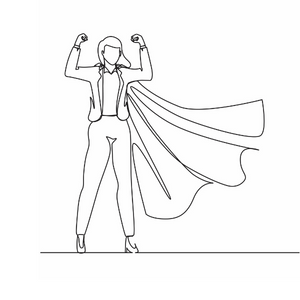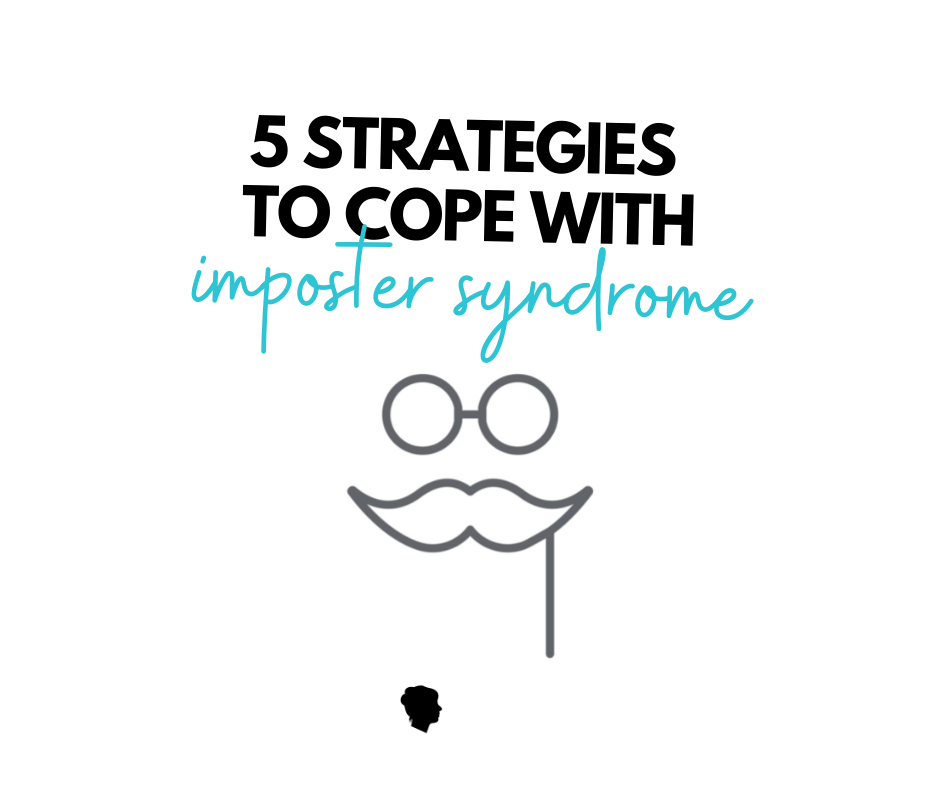Do you feel like you don’t belong where you are? Do you feel like a fraud in your own life and worry about everyone finding out that you’re an imposter? You could have imposter syndrome.
Imposter syndrome happens when someone has immense doubt about themselves or feels like a fraud. This disorder can create a conflict between your self-perception and how you think others perceive you. So, what exactly does this syndrome entail, and how do you cope with imposter syndrome?
What Is Imposter Syndrome
Imposter syndrome is described as doubting yourself and your abilities, and feeling like a fraud in your own life. It can also be referred to as perceived fraudulence, with feelings of self-doubt and personal incompetence.
People with imposter syndrome may suffer from these feelings of self-doubt and low self-confidence, despite their education, experience, accomplishments, and success. Imposter syndrome often affects high achievers, as they may find it difficult to accept their achievements in life.
However, imposter syndrome can affect anyone of any background or profession, and it is not limited to high achievers or those who are highly educated. As a result of imposter syndrome, sufferers may feel immense pressure and stress as they are always trying to achieve more and perform better.


How To Tell If You Have Imposter Syndrome
If you have imposter syndrome, you may agonize over your shortcomings or minor mistakes in your work or life. You may also be very sensitive to constructive criticism or downplay your expertise and achievements because you feel like a fraud.
There are some common telltale signs of imposter syndrome, which may include:
- Berating and judging yourself
- Overachieving
- Self-doubt
- Attributing your achievements and success to other people or factors
- Inability to assess or congratulate your skills and abilities
- Self-sabotaging your success
- Setting too challenging or unrealistic expectations and goals for yourself
- The need to work harder to feel worthy of success
- Feeling fraudulent
- Feeling guilty for ‘tricking’ people
5 Strategies To Cope With Imposter Syndrome
1. Assess Your Abilities
When you have imposter syndrome, take time to assess your abilities. You may be under the impression that your skills and expertise are not good enough or that you don’t deserve your accomplishments, but we promise you that you do. Take some time building on your skills to help with confidence. Make sure to celebrate your achievements, as well.
2. Stop Comparing Yourself
When you compare yourself to others, you may feel like you’re not good enough or don’t belong. This can fuel your feelings of self-doubt, which is unhealthy for your mental well-being. Instead, remember that everyone is different and has a different life than you. Don’t compare yourself to others; focus on listening to their stories and work on your own.
3. Don’t Let It Hold You Back
You may feel like you don’t belong, but you do. You have family, friends, colleagues, and people who care about you, and you have a place in their lives and your own. Try not to let your internal feelings about yourself stop you from pushing for what you want and achieving your goals in life.
4. Limit Social Media
Social media can be incredibly toxic, and it’s all too easy to compare yourself to other people and feel like you’re not as successful. It can make you feel inferior and hold you to an unrealistic standard. Your authentic self is your best self.
5. Don’t Be Afraid Of Failure
Failure is the first step in learning something new and doing better. You can find value in failure, move on from the mistake, and try again next time. If you don’t fail from time to time, you won’t learn how to succeed. Criticism can be hard to take, but sometimes having an outside perspective can improve your work and make it better.
Embracing Yourself
Imposter syndrome can hold you back from reaching new heights and offering remarkable contributions to this world. Rather than questioning your accomplishments, embrace the beauty you have to offer. If you need help seeing yourself for who you truly are, seek a therapist who can give you an objective opinion. You have great things to offer, don’t let imposter syndrome stop you.
If you feel like you may have imposter syndrome and would like to start therapy to explore the origins of where your feelings are stemming from, let’s connect. If you are ready to make a change in your life, I can help.
I offer in person and virtual therapy sessions- let’s do what’s best for you. If you are interested in speaking to me to see if we would be a good fit, please reach out. Contact me to schedule a complementary 15 minute phone consultation. I look forward to hearing from you.




